Current Final Years
Current Third Years
Current Second Years
Current First Years
Current Final Years
Hayley Reeve
Hayley holds undergraduate and MRes degrees in Psychology from the University of St Andrews, where she applied a behavioural approach to explore rodent cognition. Her interests have since shifted towards the neural processing underlying cognition, having integrated neuroanatomy and neurophysiology with behaviour during research assistant posts at the University of Sussex and the MRC Brain Network Dynamics Unit at the University of Oxford. Most recently, she contributed to data collection using electrophysiology and optogenetics in combination with behaviour to investigate memory-related activity in the hippocampus and beyond.
She joins the University of Bristol for her PhD on interactions between the cerebellum and prefrontal cortex during goal-directed behaviour, under the supervision of Prof Richard Apps, Prof Clea Warburton, and Dr Nadia Cerminara.
Ellie Fletcher
(she/her)
Ellie graduated with a BSc from the University of Warwick in 2019 where she also did an Intercalated Study Abroad Year at Monash University, Melbourne. She then went to the University of York for a MSc by Research looking at photosynthesis in algae, particularly the dynamics of an organelle called the pyrenoid.
Ellie became fascinated by plant organelle dynamics in 2016 when she attended a confocal microscopy workshop at the Gatsby Plant Science Summer School. Ellie is now working under the supervision of Dr Imogen Sparkes and Prof David Stephens to re-engineer Golgi dynamics in plants, as a novel strategy to increase food production. This will be achieved by identifying molecular components, more specifically myosins and their interactors, which drive Golgi movement and affect cell growth.
Fraser Woodburn
Fraser graduated from Cardiff University with a BSc in Biological Sciences in 2020. In his third-year placement, he worked for a sea turtle conservation NGO in Malaysia with Dr Nicolas Pilcher. When he returned to Cardiff for his final year, he undertook a project on the effect of social context on the production of the male-specific pheromone, cis-vaccenyl acetate, in Drosophila melanogaster with Dr Wynand van der Goes van Naters. He has developed a keen interest in conservation, sensory ecology and neuroethology.
Fraser’s PhD is based primarily at the University of Bristol, supervised by Prof Daniel Robert, and co-supervised by Prof N. Hempel de Ibarra at the University of Exeter. The aim of his PhD is to determine the mechanisms of electroreception in Bumblebees and Honeybees.
Amaia Alcada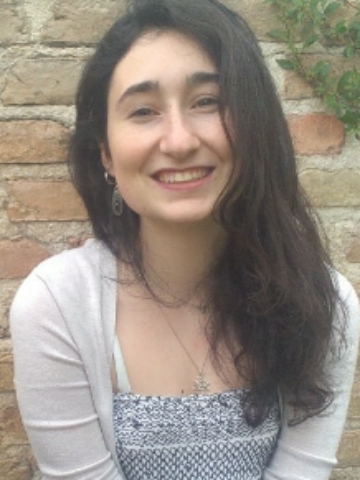
Amaia graduated from the University of Navarra (Spain) in 2020 with a BSc. in Biology. During her degree, she had the opportunity to do a placement at the University of Cambridge, studying the role played by the Hox genes in neuronal diversification. There she became fascinated by neuroscience. In 2022 she completed her Master’s by Research at University of Bristol. Her research was focused on studying the expansion of a certain structure of the brain called the Mushroom Body in Heliconius butterflies. This project consolidated her interests in evolutionary biology and neuroscience and made her want to pursue a PhD in these areas.
For her PhD, Amaia will be looking at the development of the expanded Mushroom Body in Heliconius butterflies under the supervision of Dr Stephen Montgomery and Dr James Hodge.
David Alliband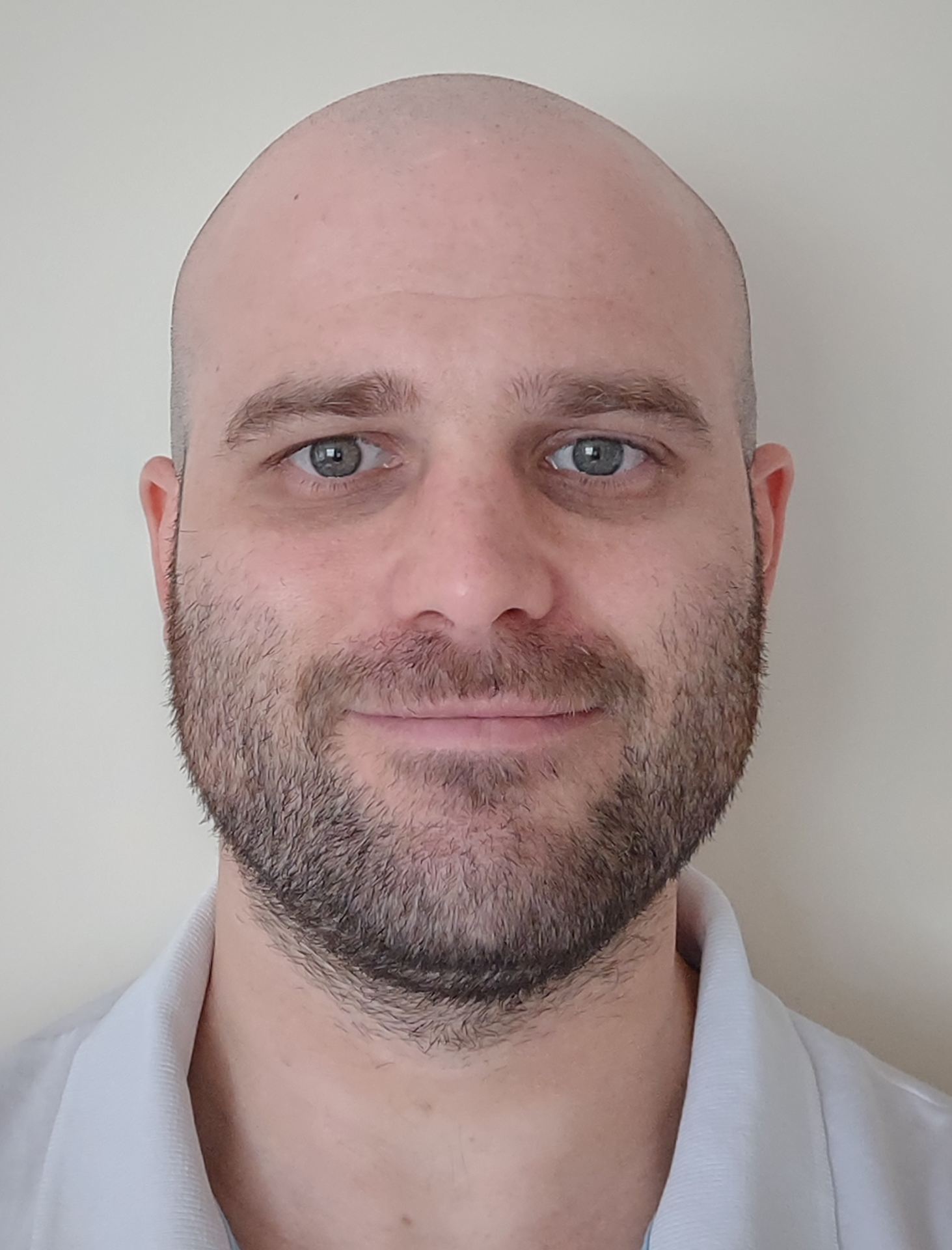
Standard studentship with associate partner: In collaboration with University of Bristol + University of the West of England (UWE)
(he/him)
David earned his undergraduate degree in Biomedical Science from the University of Worcester in 2021. His research project focussed on the relationship between blood fatty acid content and cognition under the supervision of Dr Allain Bueno. He then investigated infection-induced neurodegeneration and action selection in Drosophila during his MRes at the University of Birmingham in 2022, supervised by Prof Alicia Hidalgo and Assoc Prof Carolina Rezaval.
David’s PhD project is supervised by Prof Jon Lane and Dr Lucy Crompton investigating autophagy control of human neuroinflammatory signalling using hiPSC-derived astrocytes, microglia, and neurons in 2D and 3D co-cultures.
Amy Amin
(she/her)
Amy graduated from the University of Bristol where she completed an MSci Neuroscience and after taking a gap year, she is continuing her studies here for her PhD. She was inspired by her final year project which combined computational modelling to supplement a behavioural model for the assessment of motor adaptation, leading her to pursue a PhD.
Her PhD project under Dr Paul Dodson focuses on probing the function of dopaminergic inputs from the basal ganglia into the cerebellum. She is interested in understanding the motivational decisions that drive our movements. She hopes to explore this connection in neurodegenerative and psychiatric disorders such as Parkinson’s, OCD, and depression, where the circuit malfunctions. The project will utilise a combination of laboratory techniques with computational modelling to understand how movement and related motivational signals are processed in the brain.
Tejavsi Anand
Tejasvi graduated from the University of Bristol in 2022 with a BSc in Biomedical Science. During this time she developed a keen interest in cellular and molecular biochemistry which was further fueled by an internship at Zumutor Biologics where they aimed to identify novel immunotherapies using monoclonal antibodies from a human antibody gene library.
Tejasvi’s interdisciplinary PhD project, supervised by Professor Mark Szczelkun and Dr. Thomas Gorochowski aims to understand the molecular mechanism behind a type of phase variation used by certain bacterial Type I Restriction-Modification enzymes called “shufflons”. She additionally hopes to investigate the potential of shuffling as a basis for the rational design of genetic switches.
Marvellous Arabambi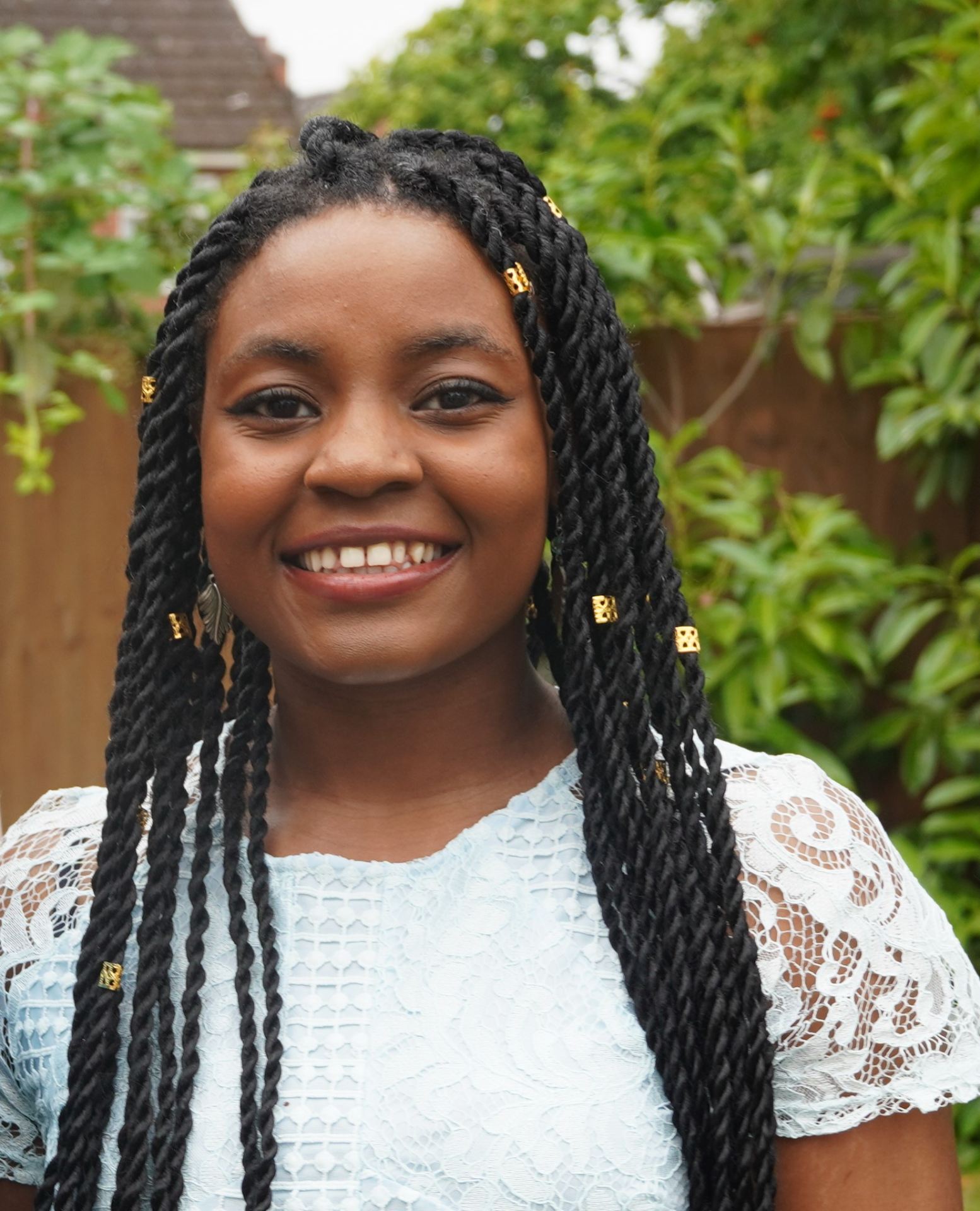
Marvellous graduated from the University of Warwick in 2022 with a MChem Chemistry with Medicinal Chemistry. Her final-year project was with Professor Sébastien Perrier, investigating how polymer and small molecule chemistry could be used in improving the stability and control over the length of self-assembling supramolecular cyclic peptide nanotubes for the purpose of drug delivery.
Her interest lies in conducting interdisciplinary research which explores the interface between chemistry and biology. Marvellous’ PhD project will involve the application of computational molecular simulation methods, and single molecule biophysical experiments, to investigating enzymes mechanism, conformational behaviour and fluctuations. The results will provide atomic-level insight into enzyme activity and inhibition, relevant to enzyme design and evolution. The project is supervised by Prof Adrian Mulholland, Prof Frank Vollmer, Dr Marc van der Kamp and Dr Chris Pudney.
Natasha Brock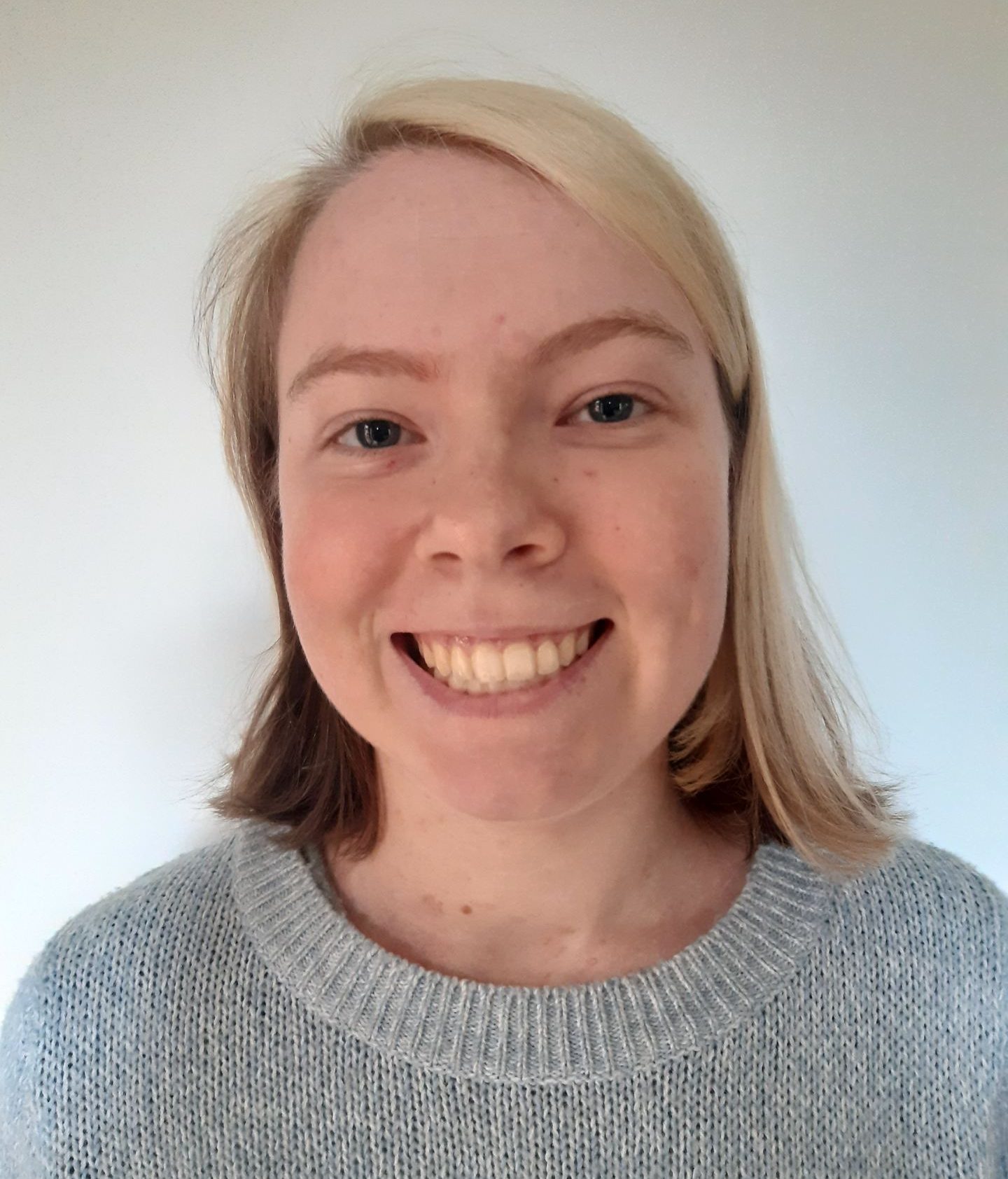
Studentship led by Rothamsted Research
Tash graduated from the University of York with a BSc in Biological Sciences (with a Year in Industry) in 2022. During her Year in Industry, Tash worked in the Novel Human Genetics Research Unit at GlaxoSmithKline. Her final year project with Prof Neil Bruce was characterising the Glutathione detoxification pathway of TNT and Copper in Arabidopsis thaliana at the Centre for Novel Agricultural Products (CNAP).
Tash’s PhD will be based at the Rothamsted Research, supervised by Prof Nigel Halford, with co-supervisors Dr David Withall (Rothamsted) and Dr Gary Barker (University of Bristol). The main aim of her PhD is to use CRISPR/Cas9 to re-engineer wheat to alter its amino acid metabolism.
Emily Carr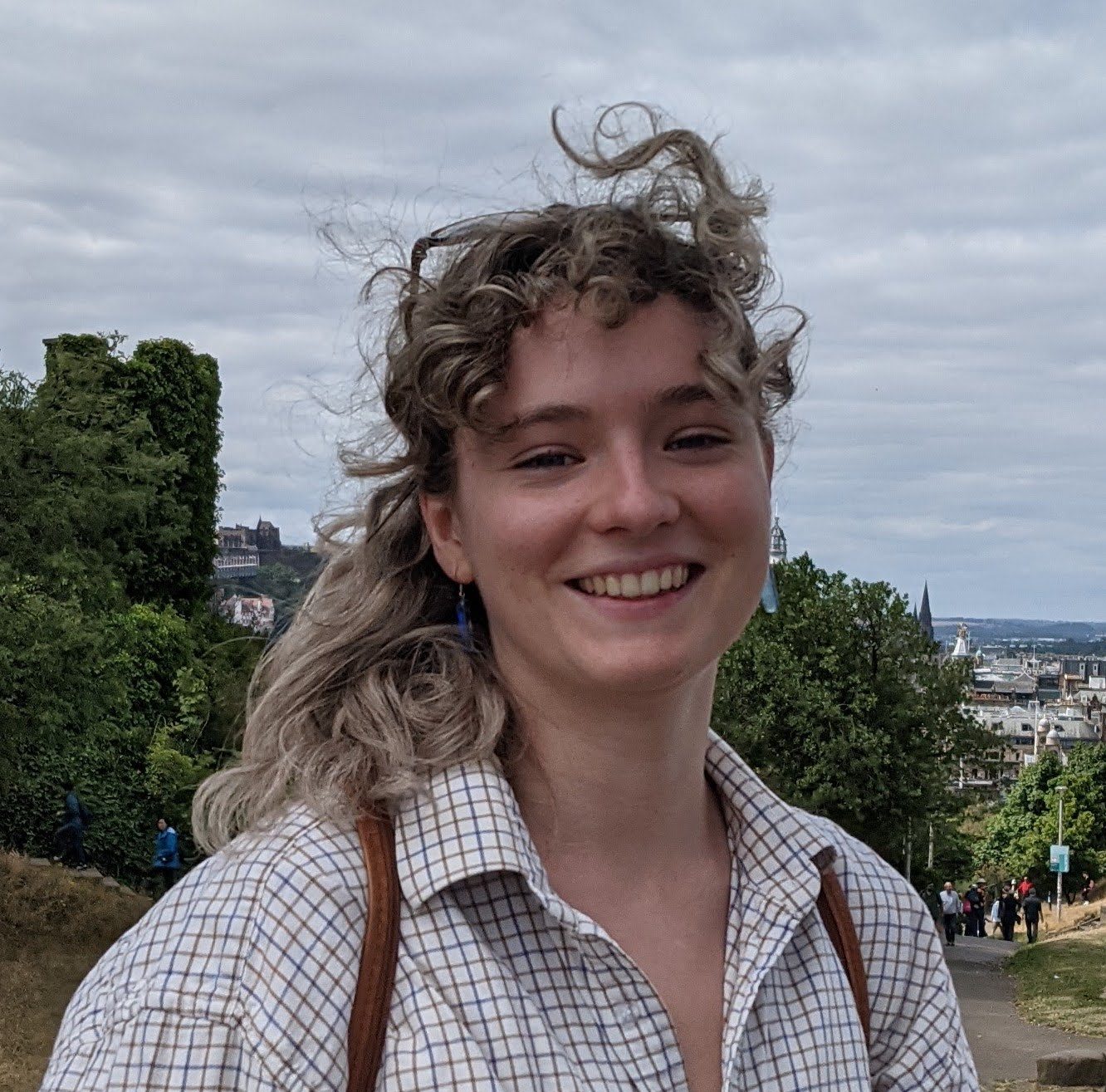
CASE studentship
(she/her)
Emily graduated from the University of Bristol with an MSc in Biology in 2021. During the third year of her integrated master’s, Emily completed work investigating how root hair structure aids adhesion to the soil. Then, for her fourth year, she worked on creating phylogenies describing how the process of hydrotopism may have evolved.
Building further upon her knowledge of plant roots so far, Emily will be working with Professor Claire Grierson to understand how root exudates from wheat affect root soil interactions, with the aim of using this knowledge to prevent soil erosion. Emily’s work will also involve a CASE placement at LettUs Grow, a vertical farm based in Bristol.
Nick Cherbanich
(he/they)
Nick is a Pharmacology graduate, with a focus on neuroscience and behaviour. Their previous projects have investigated the effect of psychoactive drugs and schizophrenia genetic risk factors on rodent perception, cognition, and affective state. Nick also has non-academic interests in the intersection between psychology, social politics, and language. Their PhD will investigate the effects of prediction error on emotional state in different species, with a view to understand the cognitive mechanisms of depression to improve both human health and animal welfare.
Joe Flanagan
CASE studentship
Joe is an MSci Natural Sciences graduate from UCL with a background spanning neuroscience, pharmacology, psychology, and organic chemistry. Joe is currently researching the molecular and synaptic mechanisms which underlie the sustained antidepressant effects of NMDA receptor antagonists at the University of Bristol. Joe is fascinated by the mechanistic role that dysfunctional endocannabinoid and serotonergic signalling plays in the pathophysiology of neuropsychiatric disorders, neurodegenerative diseases, and cancer; and how compounds targeting dysfunctional endocannabinoid and serotonergic signalling (i.e., cannabinoids and psychedelics) may prove to be breakthrough treatments for these debilitating disorders/diseases that currently lack efficacious pharmacotherapies.
Tom Gerrard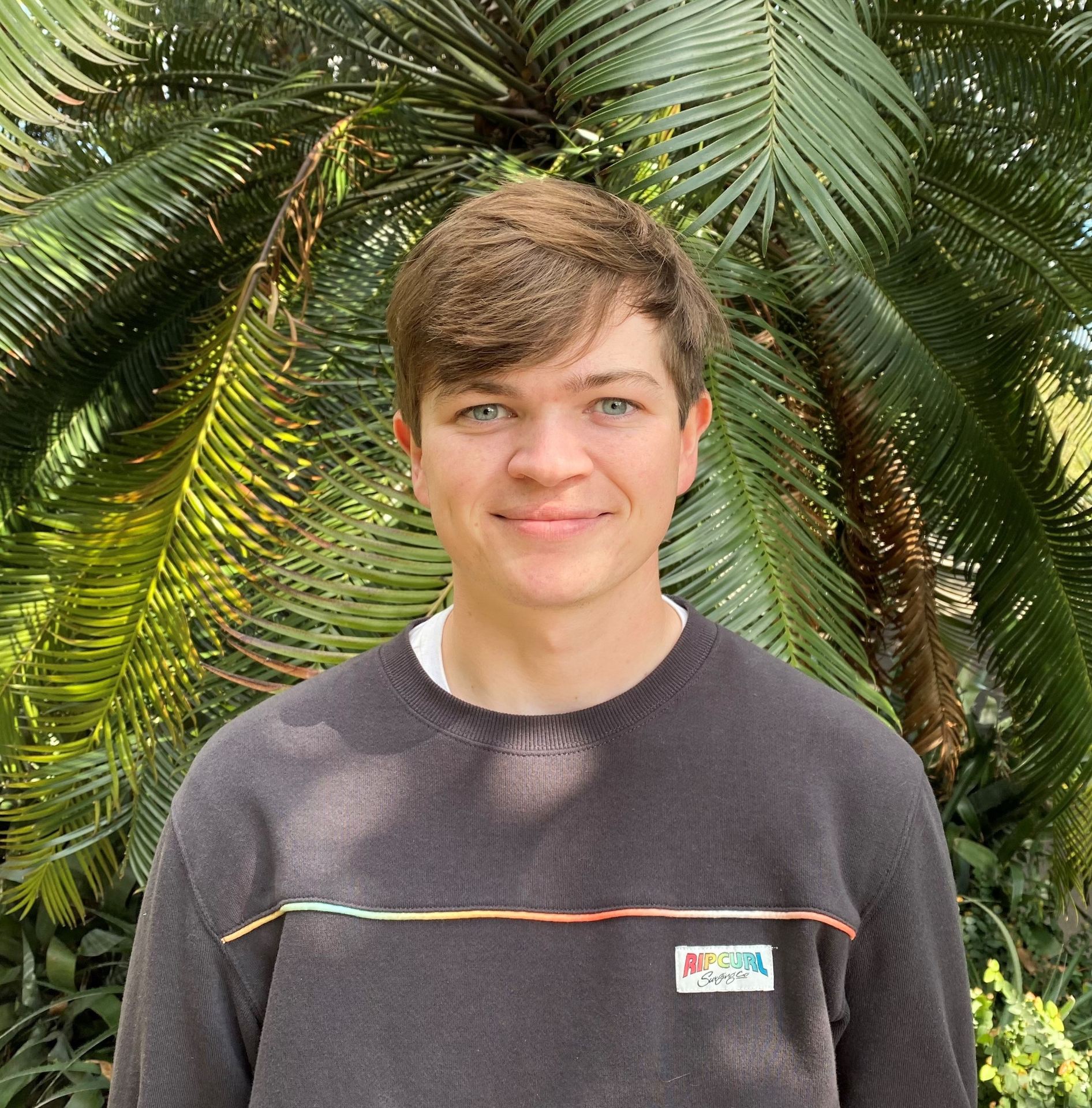
Standard studentship with associate partner: In collaboration with University of Bristol + University of the West of England (UWE)
After graduating from University of Bristol with a BSc Biology, Tom completed a master’s by research degree in biological sciences. His research master’s focussed on the development of single nucleotide polymorphism marker panels which would allow rapid genotyping of unknown pathogenic bacteria.
His PhD project is supervised by Dr Darryl Hill from Bristol and Dr Lynne Lawrance from UWE. Tom aims to use his background in bioinformatics to look into the population biology of Moraxella catarrhalis and to provide insight into the pathogenesis and antibiotic resistance of these opportunistic bacteria.
Sara Hall
CASE studentship
Sara graduated from the University of Edinburgh in 2003 with a BSc Zoology and completed her final year project at the Moredun Research Institute in Edinburgh. She then went on to work in the dairy sector as a specialist cheese buyer before returning to work on her family farm. Sara is hugely motivated by the significant challenges currently faced by the UK dairy industry and passionately believes that collaborative research between science and farmers is of vital importance to achieve sustainable agriculture.
Supervised by Dr Daniel Enriquez-Hidalgo at the University of Bristol and Dr Taro Takahashi at Rothamsted, and in partnership with Pasture for Life, Sara’s PhD will consider environmental, economic and animal welfare aspects of conventional, regenerative and sustainably intensified dairy systems. Using field-based research and multidisciplinary approaches, she hopes the project will help identify optimal dairy farming systems for the future.
Tanya Kaur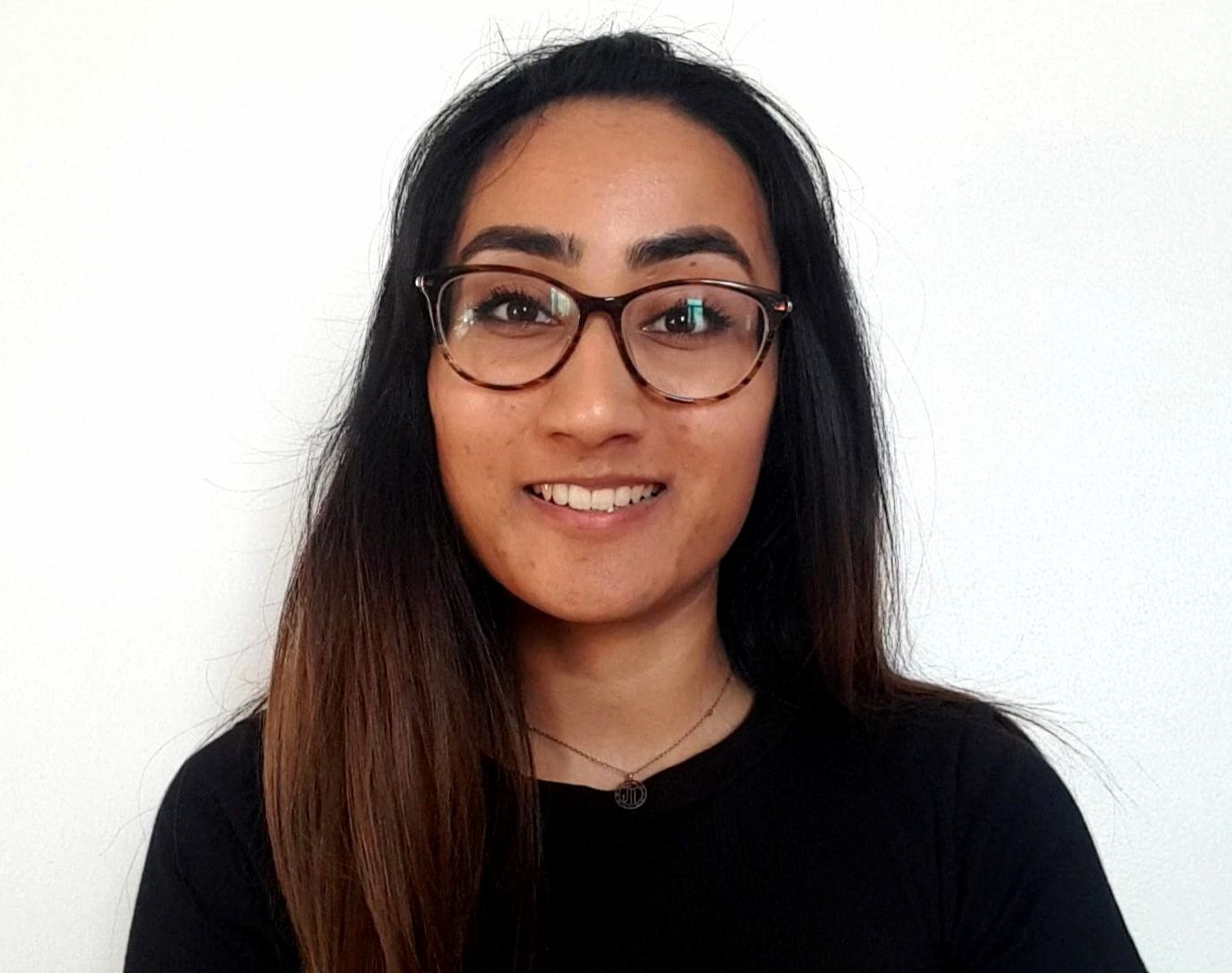
(she/her)
Tanya graduated from the University of Birmingham with a BSc Biomedical Science in 2021, followed by an MRes Molecular and Cellular Biology. During her time at university, she developed a strong interest in the restoration of misaligned circadian rhythms as a therapy for metabolic disorders. Tanya thus ventured into neuroendocrinology during her masters, where she explored the hypothalamic role of the PAS-domain protein kinase in energy homeostasis, under the supervision of Dr Gabriela Da Silva Xavier.
For her PhD project, Tanya will investigate the interplay between the homeostatic and circadian centres of the hypothalamus through the melanocortin system, with the aim to therapeutically adjust when and how much we eat, sleep and exercise. A combination of approaches including electrophysiology, behavioural assays and bioinformatic analyses will be employed, with supervision by Prof Hugh Piggins, Prof Kate Ellacott, Prof Matt Jones and Dr Andrew Wood.
Liz Moruzzi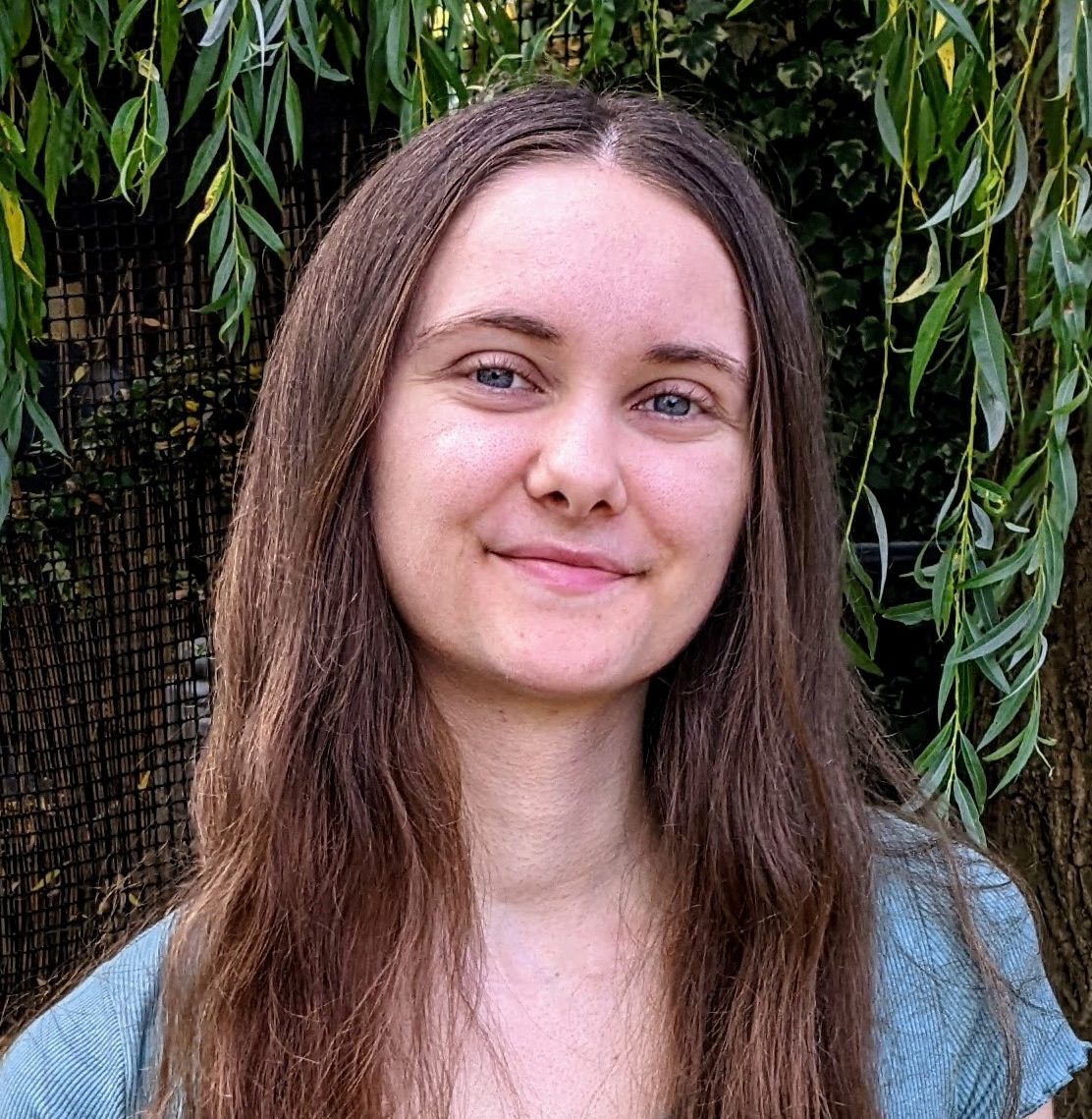
(she/her)
Liz graduated from the University of Bristol in 2022 with an Msci in Biochemistry. Her final year project investigated which SENP removed SUMO-2/3 from Rho-GTPase in Prof. Jeremy Henley’s lab. In summer 2021, she undertook a studentship project where she helped characterise novel ADDobodies for next generation antivenoms in Prof. Christiane Berger-Schaffitzel’s lab. These projects sparked her interest in applying synthetic biology in a natural cell-based context.
Staying in Bristol for her PhD project, she will design a de novo self-regulated molecular motor, supervised by Dr Mark Dodding and Prof. Dek Woolfson. She aims to improve understanding of molecular motors and integrate this synthetic motor design into natural cells.
Alex Pinto
Alex graduated from the University of Porto in 2021 with a Master’s in Bioengineering directed mainly to Molecular Biotechnology. During his degree, Alex developed a strong interest in molecular signalling, particularly in the endocannabinoid system, given its paradoxical ubiquity and specificity of function. This led him to develop a final project focusing on endocannabinoid and Ca2+ dynamics in astrocytes, under the supervision of Giovanni Marsicano at Neuro centre Magendie, France.
Following the same line of research, Alex’s PhD project will focus on type-1 cannabinoid receptor (CB1) diversity of function. The aim is to understand the mechanisms underlying CB1 polarization to different subneuronal localizations with emphasis on the role of mRNA untranslated regions contained in CB1 transcripts. This project will be developed mainly at the University of Bristol, under the supervision of Professor Jeremy Henley.
Anjali Shah
Anjali graduated from University of Bristol in 2021 with an MSci Chemistry with Industrial Experience. She established an interest in the interface of chemistry and biology early on, inspiring her to pursue an industrial placement at Evotec. She gained experience in medicinal chemistry while working on the lead optimisation stage of a project, driving her curiosity in drug discovery. Her final year project, under Professor Dek Woolfson, focused on de novo designed alpha helical barrels and their applications.
She will now begin a PhD under Professor Chris Willis at the University of Bristol. The project focuses on maleidrides, aiming to explore their biosynthetic pathway including the mechanism behind ring contraction and the role of particular enzymes. Additionally, the generation of a library of novel maleidrides with the goal of producing bioactive compounds. This will tie in with and develop her skills in organic chemistry, biosynthesis and drug discovery.
Matthew Turk
Matthew graduated from University of Exeter in 2021 with a first-class BSc (Hons) Biological Sciences, where he developed an interest in safeguarding food security. His dissertation studied the genetic basis of floral transition in duckweed species and considered how exploitation of non-standard crops may impact future food security.
Following completion of his undergraduate degree, Matthew was selected for a Lady Emily Smyth MScR studentship within the Molecular Plant Pathology Laboratory at University of Bristol, focusing on furthering understanding of the bases of infection and symptomology in two viral diseases of cassava. Cassava is a critical tropical crop, and this understanding could be utilised to develop future plant biosecurity procedures, better ensuring global food and economic security. His PhD project “Saving Cassava: A Novel Gene in a Deadly Virus” will expand on this research, characterising the role of different (Ugandan) Cassava brown streak virus genomic regions in infection.
Current Third Years
Afsal Ayoob Khan
Studentship led by Rothamsted Research
Afsal is a B. Sc-M.Sc. (integrated) Climate Change Adaptation graduate from College of Climate Change and Environmental Science (CCCES), Kerala Agricultural University, Thrissur, India. He also has a master’s degree in Sustainable Agriculture from the University of Padua, Italy and PG Diploma in Sustainability Science from Indhiragandhi National Open University, New Delhi, India. He is interested in the field of climate change in relation to the environment and livestock sector, focusing on its impact, adaptation and mitigation strategies that enable to reduce the negative impacts pertaining to the changing climate scenario.
An experienced professional with expertise in areas such as climate change, sustainable agricultural production, and environmental management, Afsal has published several scientific articles in internationally reputed journals and has had abstracts in national and international conferences. He attended several international conferences/symposiums within the country and abroad. He specialises in climate change and livestock production, with a primary focus on developing interventions to reduce enteric methane emissions from livestock. His research is under the supervision of Dr. Daniel Enriquez-Hidalgo (University of Bristol), Dr. Jordana Rivero (Rothamsted Research) and Dr. Christopher Browne (ZELP Co.) and will focus on interventions to reduce enteric methane emissions in the early life of cattle, supported by ZELP CASE Project. This is rooted in a deep commitment to addressing one of the most pressing challenges of our time: mitigating the environmental impact of the livestock industry while ensuring sustainable agricultural practices.
Felix Bowers
Felix completed his Integrated Masters in Palaeontology and Evolution at the University of Bristol in 2023. His master’s project used phylogenomic methods to study fungal evolution. During his undergraduate years, Felix developed an interest in computational modelling through work in mining and a 2022 internship. Under the supervision of Emily Rayfield, he developed a deep learning protocol for automated segmentation of bone and cartilage in CT scans.
Continuing his research in Bristol, Felix focuses on three-dimensional imaging to study bone remodelling in zebrafish. He aims to explore the relationship between form and function, providing insights valuable for both evolutionary biology and medical science.
James Boyd
CASE studentship
James graduated with a BSc in Cancer Biology and Immunology in 2022 from the University of Bristol. His final year project investigated the effects of the immunosuppressive protein, TIM3, on activation of immune cells called T-cells, with Professor Christoph Wuelfing. During this project he developed a fascination for T-cells and how they can be used to treat cancer. He then continued on to complete an MRes with Prof Wuelfing, investigating the impacts of a novel immunostimulatory receptor on T-cell activity.
James’ PhD is investigating how mutations in the T-cell-associated protein, CD8, impacts the affinity of T-cells for cancer cells, and how this impacts T-cell-mediated tumour death. This project aims to use both molecular dynamic simulations and cellular imaging to investigate how CD8 mutations could be used to enhance cellular cancer therapy.
Tom Chambers
CASE studentship
Tom graduated from the University of Manchester in 2022 with a BSc in Biochemistry. He remained in Manchester and completed an MSc in Biochemistry the following year. During his master’s project, Tom joined the lab of Professor Christopher Grant. His research focused on the role of the helicase Dhh1 in the formation and regulation of processing bodies and stress granules in Saccharomyces cerevisiae.
Tom’s PhD project is supervised by Professor Mark Dillingham and is in collaboration with Oxford Nanopore Technologies. His project has two primary aims. Firstly, to optimise the speed, accuracy, and simplicity of nanopore sequencing by incorporating novel DNA helicases. Secondly, to use the traces generated during nanopore sequencing to study the mechanism of action of DNA helicases, particularly those of medical interest and how they are affected by drugs or mutations.
Ana Paula Cipriano
 Ana Paula Cipriano holds a Biology degree from the University of São Paulo, and she completed her master’s at the same institution, with an internship at the Pontifical Catholic University of Chile. Since her undergraduate studies, she has been fascinated by social insects, conducting research on the behavioral ecology of stingless bees for her undergraduate dissertation to conclude her bachelors. After graduating, she undertook a one-year internship focused on sea turtle conservation, involving research, fieldwork, and environmental education for the general public in various cities along the Brazilian coast.
Ana Paula Cipriano holds a Biology degree from the University of São Paulo, and she completed her master’s at the same institution, with an internship at the Pontifical Catholic University of Chile. Since her undergraduate studies, she has been fascinated by social insects, conducting research on the behavioral ecology of stingless bees for her undergraduate dissertation to conclude her bachelors. After graduating, she undertook a one-year internship focused on sea turtle conservation, involving research, fieldwork, and environmental education for the general public in various cities along the Brazilian coast.
During her master’s, she focused on investigating how factors like climate and hormones impact morphology, shedding light on the interplay of environment and reproduction in South American lizards. Ana Paula’s keen interest lies in understanding animal interactions with their surroundings, with a focus on ecology, behavior, and conservation. Currently pursuing her PhD at the University of Bristol under Dr Christoph Grüter, she aims to understand the drifting behavior in Brazilian stingless bees and UK honeybees. The project’s scope encompasses factors such as nutritional state, pesticide exposure, and pathogen infection, while also considering the spatial arrangement of apiaries. This research collaboration extends to Meli, a non-profit organization focused on traditional communities in Brazil.
Selina Diether
Standard studentship with associate partner: In collaboration with University of Bristol + University of the West of England (UWE)
Selina successfully completed her Biomedical Science undergraduate degree and Master in Research at UWE Bristol. During her degrees and work as a research technician in the Greenhough Lab she has been researching hypoxia (oxygen deprivation) induced signalling mechanisms and metabolism in pancreatic cancer. Throughout her research experience she developed a keen interest in how cells sense and respond to changes in their microenvironment which motivated her to pursue a PhD.
Selina´s project, supervised by Professor Anne Ridley (UOB) and Dr. Alexander Greenhough (UWE), focuses on elucidating the role of receptor-mediated mechanical sensing and signalling during intestinal homeostasis and epithelial barrier function in response to biophysical stress using 3D organoid culture and 2D mechanonsensing models.
Cameron Haddow
Cameron graduated from the University of Bath in 2021 with a BSc in Biochemistry. During this he developed an interest in drug discovery and cancer biology leading to an industrial placement within the AstraZeneca Biophyics team (Cambridge, UK). Upon graduation, he built upon this at the CRO: Domainex (also Cambridge, UK) again using Biophysics to characterise molecular interactions across early phase drug discovery projects.
In both roles Cameron developed a specific interest in the mechanisms of E3 ligases harnessed by novel induced degradation modalities (e.g: PROTACs). This inspired him towards his research theme: ‘Molecular mechanisms of the ubiquitin system’ supervised by: Christiane Berger-Schaffitzel, Jeremy Henley (University of Bristol) and Julien Licchesi (University of Bath).
Dulcie Havers
CASE studentship
Dulcie graduated for the University of Oxford in 2023 with an MSc in Biochemistry. During her master’s research project, Dulcie worked on systems involved in bacterial cell division investigating components of the Tol-Pal system and their interactions. This developed her interest in the mechanistic basis of bacterial biology.
Dulcie has now joined the Collinson group at the University of Bristol, where she is undertaking a CASE project working with the Oxford-based biotechnology company Oxford Nanopore Technologies. Dulcie is researching the ubiquitous bacterial SEC machinery, a system used by all bacteria (and eukaryotes) to translocate proteins across membranes. This project aims to better understand the dynamic mechanism of this system, and how this could be exploited in a biotechnology context.
Magdalena Kaźmierczak
Magdalena graduated from Warsaw University of Technology in 2021 with MSc in Chemical Technology and from University of Warsaw in 2022 with MSc in Computational Engineering. During her second Master’s degree she worked towards computational modelling of novel semiconductors and nanoswitches for the next generation of electronics. It was that time that helped her discover an interest in the application of computation simulations in molecular modelling and drug design.
Under the supervision of Dr Marc van der Kamp and Prof Chris Willis Magdalena aims to utilize computational simulations as well as experimental characterization to design new classes of Dielse-Alderases with specific activity and selectivity. These enzymes are proven to sustainably biosynthesise tetronate antibiotics such as abyssomicins – natural products with highly promising antibiotic activity.
Emily Lai
(she/her)
Emily attained her Bsc (Hons) in Chemistry from the University of Bristol in 2023. Her final-year project, completed under the supervision of Prof Matthew Crump, involved the successful synthesis of a carefully designed mimic substrate for the putative esterase in the biosynthetic pathway of the antibiotic mupirocin.
Her PhD will delve deeper into this field looking more closely at the spatiotemporal control governing the interactions between these enzymes and their ligands. By using various NMR assay techniques which allow for real-time observations of substrate processing, coupled with the use of specific substrate mimetic probes and Cryo-EM to capture intermediate conformations of these proteins, she hopes her project will significantly enhance our understanding of systems offering insights to help tackle the global threat of antibiotic resistance.
Lisa Moiseienko
Standard studentship with associate partner: In collaboration with University of Bristol + University of the West of England (UWE)
Lisa graduated from Taras Shevchenko National University of Kyiv in 2022 with a Master’s in Biology and the qualification of a Junior Researcher, specializing in Microbiology. Her graduation project was focused on investigating the probiotic properties of lactic acid bacteria and was titled ‘Screening of Lactic Acid Bacterial Strains for the Further Fermentation of Plant Juices.’ During the past year, Lisa worked as a Research Technician at the University of Bristol, where her research interests shifted towards antibiotic-resistant bacteria, particularly resistant E. coli isolated from farm animals and human samples.
The aim of Lisa’s PhD project is to investigate the mechanism of action of novel technology as cold atmospheric plasma and its effects on cells of antibiotic resistant bacteria. The project is supervised by Prof Matthew Avison at the University of Bristol and Dr Alexandros Stratakos from the University of the West of England.
Elsa Oakes
CASE studentship
(she/her)
Elsa graduated from the University of Exeter with a BSc in Neuroscience in 2023. During her undergraduate degree she undertook a placement year, researching the role of extra-synaptic GABAergic signalling in the brain’s master circadian clock. Additionally, she completed a final year project investigating the microglial response to adeno-associated viral vector injections. These projects fostered her interest in neural circuit function and neuroimmune communication.
For her PhD project, Elsa will investigate the mechanisms by which psilocybin treatment alters neural plasticity in rodents. This research aims to provide insight into how psychedelic drugs could be used to treat psychiatric disorders such as major depressive disorder. The project is supervised by Dr Jack Mellor and Dr Emma Robinson (University of Bristol). Elsa’s work will also involve a CASE placement with COMPASS pathways.
Liberty O’Brien
(she/her)
Liberty graduated from the University of Aberdeen in 2022 with an integrated master’s degree in chemistry, with a focus on environmental chemistry and soil science. For her master’s research project, she worked with a research facility in Iceland, investigating trends in trace metal concentrations in seaweeds sampled locally.
Her PhD research is co-supervised by Dr Charlotte Lloyd at the University of Bristol and Dr Martin Blackwell at Rothamsted Research. The project aims to explore the potential to exploit the positive properties of biodegradable plastic mulch films for their use in agriculture. Liberty is motivated by a passion for moving towards more sustainable agricultural systems and the belief that scientific research is critical in aiding this transition.
Rabia Sevil
Rabia graduated from the University of Bristol in 2020 with a BSc in Physiological Science. Following her degree, she carried out a 3-month research placement with Dr Robert Drake, working on a pilot study ‘Using machine learning to identify treatment relevant behavioural motifs in rodents’. In 2022 she returned to the University of Bristol to complete a Master’s by Research in Repair and Regeneration where she used zebrafish as a model organism to investigate the role of Tumour Necrosis Factor Alpha in the repair and regeneration of bone. This project consolidated her interest in studying age-associated disorders of bone, leading her to pursue a PhD in this area.
Rabia’s PhD project is supervised by Prof Chrissy Hammond and Dr Bernadette Carol. It aims to investigate mechanisms of senescence acquisition and survival in vitro and in zebrafish models of osteoarthritis, with an ultimate aim to find interventions to kill senescent cells and alleviate disease pathology.
Samantha Siomko 
(she/her)
Samantha graduated from the University of Alabama in 2022 with a MSc degree in biological sciences and from Gettysburg College in 2017 with a BSc in biology. Her previous work focused on microbiome-based acquired immunity against amphibian-specific fungal pathogens, and she recently completed a fellowship in public health where she developed molecular detection techniques to track emerging human pathogens in environmental water sources. Her current PhD research will investigate probiotic interventions for enteric infections in cattle under the supervision of Prof Paul Wigley and Dr Benedetta Amato.
Current Second Years
Trevor Au Yeung
Trevor graduated from the University of Hong Kong in 2004 with an MBBS degree and completed his training in endocrinology in 2011. He was privileged to be part of a dynamic team at a tertiary centre in Hong Kong, where he had the opportunity to participate in clinical studies on hyperthyroidism and adrenal diseases. During his clinical practice, he continued to develop a strong interest in basic science research. Trevor’s PhD project, entitled “Investigating the interactions of incretin hormone mimetics with hypothalamo-neurohypophysial system arginine vasopressin and oxytocin release”, is supervised by Prof David Murphy and Dr Michael Greenwood at the University of Bristol and Dr Kate Ellacott at the University of Exeter.
Gabi Bergmane
(she/her)
Gabi graduated from the University of Portsmouth in 2024 with a BSc in Biomedical Science. During her degree, she undertook a MITACS summer research internship at the University of Victoria in Canada. There, she worked in Dr Brian Christie’s neuroplasticity lab, studying the effects of prenatal cannabis exposure on cell proliferation in the hippocampus. She continued to focus on this research topic in her dissertation, developing a keen interest in the function and structure of the hippocampus.
Gabi’s PhD project at the University of Bristol will focus on the GluD1 glutamate receptor in the CA2 subregion of the hippocampus and its role in social behaviours. Working with Prof Zafar Bashir, Dr Kevin Wilkinson, Prof Clea Warburton, Dr Paul Banks and Dr Jon Brown (Exeter), she will use a multidisciplinary approach to increase the understanding of how deficits in GluD1 and CA2 function may underlie conditions like autism and schizophrenia.
Iara Aime Cardoso

(she/her)
Iara graduated from the School of Pharmaceutical Sciences of Ribeirão Preto at the University of São Paulo (FCFRP-USP) in 2015 with a bachelor’s degree in Pharmacy and Biochemistry. In 2019, she was awarded a master’s degree in Science, focusing on Chemistry and Biological Physics, from the same university. Iara worked for 11 years as a Research Technician at FCFRP-USP, specializing in the purification and characterization of toxins from scorpions and snakes. In 2022, she moved to Liverpool to join the Centre for Snakebite Research and Interventions (CSRI-LSTM), where she worked as a Research Assistant for almost two years on the ADDovenom project, which aimed to develop a new treatment for snakebite envenomation. For her PhD, Iara will work on a project involving the expression and characterization of snake venom metalloproteases and their potential to target blood clotting factors, as well as the development of neutralizing nanobodies as the basis for next-generation snakebite therapy.
Hannah Fryer
(she/her)
Hannah graduated from The University of Sheffield with an MBioSci in Biology in 2021. After graduating, she joined Professor Jake Harris’ group at the University of Cambridge as a Senior Research Laboratory Technician where she used CRISPR-based epigenome engineering techniques to ‘prime’ plants by re-sculpting their chromatin in order to enhance plant stress response. This work inspired her to deepen her understanding of the intricate relationship between gene regulation and environmental stress in agriculturally relevant plants. Hannah’s PhD under the supervision of Dr Beatriz Gonçalves aims to investigate the genetic control of pea growth and yield under environmental stress using developmental genetics, molecular and physiological studies.
Tania Gardasevic

CASE studentship
Tania graduated from the University of York in 2023 with an MSci in Natural Sciences specialising in physics, chemistry and mathematics. She completed her final year project with Dr Agnes Noy, investigating the elastic properties of DNA using computational simulation and analysis. She continued to work on summer projects and publications in this area whilst developing a strong interest in biophysics and interdisciplinary research.
Whilst undertaking her PhD under the supervision of Dr Marc Van der Kamp, Prof Christopher Pudney and Prof Linda Wooldridge, and in partnership with Immunocore, Tania will investigate and optimise interactions between TCRs and pHLAs for the development of TCR therapy drugs against cancer cells. She aims to develop protocols which will allow integration of in-silico workflows into the drug-design process. Tania is motivated by her passion for interdisciplinary research and the development of the next generation of immunotherapy.
Eli Hughes
(he/him)
Eli’s bachelor’s degree was in Biochemisty at the University of Bristol. As part of his degree, he did a placement year with the Structural Biology STP in the Francis Crick Institute where he developed and characterised nanobodies against Notum, a regulator of Wnt signalling which is implicated in colorectal cancer and some neurodegenerative diseases.
Eli’s PhD project is shared between Jim Spencer in Cellular & Molecular Medicine and Annela Seddon in Physics. He will be creating and characterising magnetic iron nanoparticles within ferritin proteins. The ferritin surface will be functionalised with sugars and bacteriophage adhesin proteins to capture specific bacterial species and strains, with an aim of concentrating bacteria for rapid diagnostic pipelines. This project will involve classical molecular biology techniques for the creation and production of ferritin constructs, biophysical tools for their characterisation, and microbiology techniques for assessing bacterial capture.
Claire Ittleson
(she/her)
Claire received her B.S. in Marine Science from the University of Maine in 2023, where she worked with coral heat shock proteins in response to heat stress. At the University of Essex she examined population connectivity of Lophelia pertusa in the West of Scotland for her MSc in Tropical Marine Biology. She is now starting her PhD work on coral venom expression and evolutionary history in association with bleaching.
Claire has always had a drive to pursue research in coral biology since beginning to keep personal coral tanks as a child, leading her to starting her PhD at the University of Bristol with Dr Maria Sachkova and Prof Philip Donoghue.
Morgan Jones
(he/him)
Morgan graduated from the University of Warwick in 2021 with a BSc in Computer Science. He then decided to pursue his interests in palaeobiology through an MSc at the University of Bristol, where he gained an appreciation for phylogenetic and macroevolutionary research. Under the supervision of Prof Davide Pisani, Morgan’s thesis investigated the utility of barcode genes in building avian megaphylogenies.
Returning to Bristol for his PhD, Morgan is continuing to work on constructing megaphylogenies with the aim of producing an arthropod megaphylogeny using the wealth of genomic data available in online databases. He aims to develop a pipeline to construct larger phylogenetic trees and to use these to advance our understanding of the evolutionary processes driving arthropod diversity. This project will be supervised by Prof Davide Pisani, Prof Philip Donoghue (Bristol), and Dr Christopher Laumer (Natural History Museum London).
Yolanda Li
(she/her)
Yolanda is a Biochemistry and Cell Biology graduate from Hong Kong University of Science and Technology (HKUST), with a Master’s in Psychology from City University of Hong Kong (CityU). Throughout Yolanda’s studies, She has engaged in researches on neurodegeneration and neuro-regeneration, along with some off bench experiences in social researches; her work has involved a blend of statistical analysis, behavioral methods, and biotechnological approaches.
In the upcoming years, She will be working under joint supervision of Dr Paul Anastasiades, Dr Michael Ashby, and Dr Cezar Tigaret to investigate the development of dendritic signal processing in GABAergic interneurons in rodents, aiming to uncover insights into increased sensitivity during adolescence. She has a deep interest in affective cognition. To her, science is akin to art, and she hope that her future work will someday resonate with people’s emotions just as art does.
Tori Mallinson 
CASE studentship
(she/her)
Tori graduated from the University of Bristol with an MSci in Biological Sciences in 2023 and has just completed her MRes in Biological Sciences at the University of Bristol. During her MRes, she conducted research with the Sensory Biophysics group, focusing on electrostatic signalling in plant-pollinator interactions, specifically exploring how bumblebees and flowers communicate through electrostatics. Additionally, during the final year of her undergraduate degree, Tori also worked as a research assistant within the same lab, investigating the effects of electric field alterations on plant and insect interactions.
For her PhD, Tori is joining the Bee Behaviour, Ecology and Conservation Lab at the University of Bristol, working under the supervision of Dr. Harry Siviter and Dr. Christoph Grueter. Her research focuses on quantifying the impact of multiple anthropogenic stressors on bumblebee health, with a particular interest in how pollutants and climate change interact to influence bumblebee learning, memory, and foraging behaviours. As part of her project, she will collaborate with The Bumblebee Conservation Trust, a CASE partner, to develop strategies that can contribute to pollinator conservation efforts.
Florrie Newman
Standard studentship with associate partner: In collaboration with Bristol + University of the West of England (UWE)
Florrie graduated from the University of Bath in 2024 with a BSc in Natural Sciences (Biology with Pharmacology). This included a placement year in the Early Oncology Bioscience department at AstraZeneca in Cambridge, working on the development of a mass spectrometry-based assay as part of a team aiming to improve the action of PARPi. She then went on to complete a final year project centred around the culture and characterisation of pancreatic organoids.
Having had a keen interest in neuroscience and cellular biology throughout her degree, Florrie is undertaking a PhD project with Dr Kevin Wilkinson (Bristol) and Dr Tim Craig (UWE) titled “Investigating the role of neuronal metabolism in excitation/inhibition balance”. This will use biochemical, molecular and proteomic techniques to explore the effects of dietary factors and neuronal metabolism on synaptic function, an area which is currently not well understood.
Ellie Payne
(she/her)
Ellie graduated from the University of Liverpool in 2021 with an Integrated Masters in Biochemistry. During her undergraduate project she used X-ray crystallography to study the effects of small molecules on the stabilisation of a pathogenic SOD1 dimer in ALS. Her masters project investigated the role of the DNA damage response in hypoxia-induced radioresistance in head and neck cancers. Following her graduation, Ellie spent three years working as a senior technician and lab manager of a synthetic genomics group at the University of Manchester, where she found her interest in synthetic biology and the exciting opportunities it offers for medical research.
She is joining the group of Prof. Imre Berger at the University of Bristol for her PhD, where she will work on engineering a synthetic viral nanosystem for greatly enhanced production of AAVs for gene therapy.
Bruno Carlos Ramos
Standard studentship with associate partner: In collaboration with Bristol + Swansea
Bruno graduated with Honors from Centro Universitario UNA. During his undergraduate project, Bruno researched fish communities and species distribution on one of the many Amazon river tributaries in Brazil. Building on his experience with freshwater, Bruno completed his MSc from 2021-2023 at the Universidade Federal de Ouro Preto (UFOP), where he researched the effects of the pesticides Acephate and Methamidophos on the behaviour of zebrafish. Currently, Bruno is working with Prof Christos Ioannou, Prof Carlos Garcia De Leaniz, Prof Sofia Consuegra del Olmo and Prof Andrew Dowsey to develop a new AI tool for assessing fish welfare and well-being. This tool will provide a crucial means of alerting to any issues or problems in fish production through behaviour analysis using video recordings.
Janeth Rentería

CASE studentship
Janeth completed her bachelor’s degree in Biology at the Pontifical Catholic University of Ecuador and later obtained a Master’s degree in Ecology, Evolution, and Systematics from Friedrich-Schiller-Universität Jena. Her academic focus has been on insect studies, where she gained extensive experience in field collection techniques and the preservation of specimens for museum collections. Her research has primarily explored gregarious behaviour in insects and colour preferences in pollinators, with a particular interest in Lepidoptera and Hymenoptera.
In her PhD research, Janeth will examine how agricultural pollutants impact insect biodiversity in tropical forests. Her work aims to address key factors contributing to insect biodiversity loss and offer solutions for conservation. She is conducting this research under the guidance of Dr. Filipe Machado Franҫa and Dr. Christoph Grüter.
Lauren Rhodes
Lauren graduated from the University of Bristol in 2024 with a BSc in Biochemistry with Study in Industry, which included experience in the Biochemical Assay Development team at AstraZeneca Gothenburg. During her final year research project, Lauren investigated the activity of a synthetic liquid-liquid phase separation system in the recruitment of actin in vivo. This project stimulated a keen interest in the design and application of de novo peptides within a cellular context.
Lauren will join the Woolfson group to begin a PhD project supervised by Prof Dek Woolfson, Prof Paul Verkade & Prof Mark Dodding (University of Bristol). This project aims to target subcellular proteins and processes using de novo coiled coil peptides, which have the potential to modulate a variety of cellular proteins using specific mechanisms.
Emilee Sinkala
Emilee graduated from the Royal Veterinary College (UoL) in 2024 with a MSci in Biological Sciences. She has major interests in pharmacology and studied multiple pharmacology modules in 2nd year and an advanced pharmacology module in 3rd year at King’s College London.
Her final year project involved analysing novel ROCKI inhibitors after carrying out a compound library screen. She observed whether they could decrease calcification of VSMCs and interestingly found that they could. This project received a first-class grade overall and was commended during her viva.
For her PhD, Emilee is doing a project about sleep deprivation and the pathological effects it can have. She chose this project specifically because it revisits some of her previous interests in psychology from A Levels and the effects of sleep on the brain. She hopes to tie in some of her interests in pharmacology by inducing deprivation using pharmacology.
Foteini Xeni
Foteini graduated from the National and Kapodistrian University of Athens with a Bachelor’s degree in Biology in 2021, followed by an MSc in Neurosciences from the University of Trieste in 2023. During her master’s studies, she completed an internship in Emma Robinson’s lab at the University of Bristol, under the supervision of Prof. Emma Robinson and Dr. Megan Jackson. Her research focused on developing an animal model for ‘apathy syndrome’. In this project, she conducted behavioral experiments on mice, gaining expertise in pharmacology, brain histology, and imaging.
Foteini’s PhD project, titled “Ageing and Body Clock Rhythms: The Importance of a Social Network,” is supervised by Prof Hugh Piggins and Prof Emma Robinson. In this project, she will study how providing mice with opportunities for social interaction at different stages of life may counteract the aging process. Additionally, she will explore new methods for restoring brain and body clock rhythms to promote health and longevity.
Current First Years
Ashvini Wijayapala
(she/her/hers)
Ashvini graduated from the University of Warwick with an MBio in Biomedical Science with a Year in Industry. During her industrial placement with the Exploratory Biology team at Vertex Pharmaceuticals, she gained her first experience working with neuronal stem cells and electrophysiology, which inspired a strong interest in neuronal signalling and synaptic biology.
She is now pursuing a PhD at the University of Bristol under the supervision of Prof. Jack Mellor and Dr Adam Grieve. Her current work investigates the role of rhomboid proteases in regulating synaptic transmission. Using a combination of cell biology, proteomics and electrophysiology techniques the project aims to understand how rhomboid proteolysis contributes to neuronal development and function.
Corin Mylett
CASE studentship
(she/her)
Corin graduated from Cardiff University in 2025 with a MBiol, with a professional training year. Her placement year was based at the University of Amsterdam researching plant defence mechanisms. Her master’s project, supervised by Prof Hilary Rogers, focused on the genetic, molecular and physiological responses of wild rocket leaves to waterlogging stress.
Corin’s PhD will be based at the University of Bristol, supervised by Prof Kerry Franklin and co-supervised by Dr Jim Fouracre, with the industrial partner CN Seeds. Her research will explore how preharvest light and temperature treatments that promote stem elongation influence postharvest senescence, with a particular focus on the transcription factors phytochrome interacting factors 4 and 5. This will then be applied to cultivated rocket crops with the aim of enhancing crop quality and extending shelf life.
Ted Warner
Ted graduated from the University of Bristol in 2025 with an Integrated Master’s in Biology. Ted is interested in plant evolution, development, and environmental interactions, and wants to apply our knowledge of these areas to the problem of food security. So far, he has conducted research projects on zinc tolerance in red fescue grasses and the molecular mechanisms behind soil-root adhesion.
Ted’s PhD project focuses on vegetative phase change, a process that involves dramatic changes to plant shape and structure as they age. Under the supervision of Dr. Jim Fouracre and Prof. Kerry Franklin, Ted will manipulate the expression of genes that control vegetative phase change in the emerging oilseed crop Camelina to promote traits of interest to growers such as earlier flowering time. Ted will also investigate how altering growth conditions like light quality, quantity, and temperature affects these traits.
Lizzie Youens
Lizzie graduated from the University of Bristol in 2011 with degrees in Veterinary Science and Animal Behaviour and Welfare. She worked as a veterinary surgeon in small animal clinics around the UK for the next decade before moving into a research role at the Royal Veterinary College with a project focused on canine health and welfare, gaining her MRes degree in the process.
Lizzie’s PhD is focused on how time of day affects stress response and resilience in animals. Supervised by Dr Karen Mifsud and Dr Emily Blackwell, Lizzie aims to study stress responses in a range of species with varied circadian rhythms, using a mixed methodology approach.
Feihui Yu
CASE studentship
(she/her)
Feihui graduated from Renmin University of China in 2023 with BSc in Environmental Science. She later completed MSc in Ecology, Evolution and Conservation at Imperial College London. During her Master’s project in collaboration with Rothamsted Research, she gained experience in using AI to monitor gastrointestinal parasites in cattle.
Feihui’s PhD project is based at the University of Bristol in collaboration with Agri-Food and Biosciences Institute (AFBI), focusing on assessing the impact of interventions in cattle for environmental sustainability. She will be harnessing a multi-camera platform with machine vision classifiers to track the behaviours of cattle and predict individual-animal sustainability within a life-cycle assessment (LCA) model.
Katherin Rodriguez Leon
Katherin graduated in 2024 with a major in Biology and a minor in Ecology from Universidad del Rosario. For her graduation option, she completed graduate-level courses in the Master’s in Natural Sciences program while developing a research project on the effects of the pesticide fipronil on sleep in honeybees. Before graduating, she was awarded an internship from the STRI General Internship Program at the Smithsonian Tropical Research Institute. Here, she led a project in Barro Colorado Island to understand how interactions of Megalopta genalis (a facultatively social sweat bee) relate to substrate vibrations.
For her PhD project at the University of Bristol, under the supervision of Dr. Christoph Grüter, Dr. Harry Siviter, Dr. Francisca Segers and Dr. Andrés Arenas, Katherin will study how flower constancy in bees is influenced by temperature and floral distribution, and how reduced diet diversity affects bee learning, communication, and gene expression.
Louis Grelet
Louis Grelet graduated from Trinity College Dublin with a BA in Biological and Biomedical Sciences in 2025. In the final two years of his BA, Louis specialised in zoology, where he developed a fascination with animal physiology and sensory ecology.
Following on with this interest, Louis is working with Prof Nicholas Roberts and Prof Martin How, at the University of Bristol’s Ecology of Vision Research Group. Louis’ PhD will investigate how visual systems of both terrestrial and marine animals are designed to detect polarised light and use it to navigate their environment.
Niamh Brennan
Standard studentship with associate partner: In collaboration with University of Bristol + University of the West of England (UWE)
(she/her/hers)
Niamh graduated from the University of the West of England (UWE) with a BSc in Biomedical Science and an MRes in Applied Sciences. Supervised by Dr Lucy Crompton, her research projects investigated astrocytic processing of alpha-synuclein and the implications of neuroinflammation in Parkinson’s disease. This work allowed her to explore the molecular mechanisms underlying disease pathology, develop her laboratory and research skills, and inspire her commitment to advancing research that may support earlier intervention and improved treatments for neurodegenerative diseases.
She is now undertaking a PhD jointly based at the University of Bristol and UWE, under the supervision of Dr Lucy Crompton and Professor Jon Lane. Her project investigates astrocytic proteostasis in Parkinson’s disease, using molecular and proteomic approaches to further understanding of how alpha-synuclein pathology and inflammation alter cellular mechanisms and drive neurodegeneration.
Pip Young
(she/her)
Pip graduated from the University of Cambridge with a BA in Natural Sciences (Zoology) in 2024. While her final year studies focussed on conservation, evolution, and animal behaviour, she is also passionate about improving the welfare of animals whose lives are intertwined with ours.
Pip’s PhD project combines her interests in animal behaviour and welfare and aims to determine whether spontaneous behaviours of dairy cows can act as proxy markers of emotional state and welfare. The project will be supervised by Dr Ben Lecorps, Professor Michael Mendl, and Professor Andrew Dowsey.
Victoria Lievens
(she/her/hers)
Victoria graduated from UCLouvain, Belgium, with a Master’s degree in Molecular and Cellular Biochemistry and Biology, with a special interest in Neurobiology. Following her studies, she worked as a Research Assistant at the University of Oxford for two years. During this time, she collaborated with the groups of Prof Wade-Martins, Dr Fernandes, Dr Ryan, and GSK Stevenage, on projects investigating the mechanisms underlying neurodegenerative diseases. Her research primarily focused on autophagy and lipid metabolism in iPSC-derived neuronal models, using compound and CRISPR screens to explore pathways of cellular dysfunction.
Victoria is now undertaking her PhD project at the University of Bristol, supervised by Prof Jon Lane and Dr Robert Szalai. Her work will focus on the spatiotemporal control of ATG9A trafficking in human iPSC-derived neuronal models. ATG9A is an essential autophagy protein with lipid scramblase activity, and studying its trafficking could highlight how ATG9A contributes to neuronal resilience.
Henry Allman
(he/him)
Henry completed his undergraduate studies in Chemistry at UCL before specialising in Computational Chemistry during his masters at Oxford where his research project focused on protein-protein interactions. He then took a year out to work at a drug-development start-up building PK/PD models.
Henry is now pursuing a PhD in protein design, supervised by Dr Jessica Cross with support from Prof Dek Woolfson and Prof Mark Dodding. He will be designing, building and optimising synthetic motor proteins. For his first rotation project, he will be investigating Kif1A, also known as the “ultra-marathon runner of the cellular world,” due to its super long run lengths.
Cathal McGurgan
Cathal graduated from the University of Bristol in 2024 with a BSc in Biology, specialising in plant science. He went on to complete a Masters by Research in Professor Keara Franklin’s lab, co-supervised by Dr Jim Fouracre. His research explored how vegetative phase change influences stomatal responses to drought, comparing juvenile and adult leaf identities in Arabidopsis thaliana.
Cathal has now begun his PhD with the SWBio DTP under the supervision of Dr Pierre Buscaill, Professor Keara Franklin, and Professor Alistair Hetherington. His doctoral research focuses on understanding the role of cyclic GMP (cGMP) and phosphodiesterase 1 (PDE1) in stomatal immunity and broader plant immune responses to Pseudomonas syringae.
